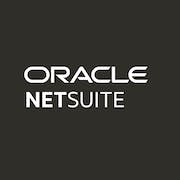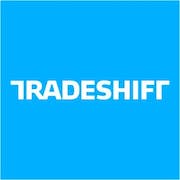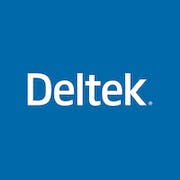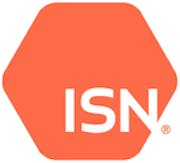Introduction to Vendor Management Software
In the fast-paced world of modern business, vendor management has become one of the most critical aspects of successful operations. Whether you are a small business or a large corporation, managing relationships with your vendors is crucial in maintaining a consistent supply chain. However, as the number of vendors and contracts increases, managing these relationships can become a significant challenge. That's where vendor management software comes in. By implementing a robust vendor management solution, businesses can streamline their processes, reduce risk, and increase efficiency. In this Vendor Management Software buyers guide, we will explore the key features and benefits of this advanced software, helping you to make an informed decision when choosing the right solution for your business.
What is Vendor Management Software
Vendor Management Software (VMS) is a comprehensive tool used by businesses to manage the relationships they have with their suppliers and vendors. It is a software that streamlines vendor selection, contract management, and performance tracking, allowing organizations to optimize their procurement processes and ensure better supply chain management. Common use cases of VMS include: - Sourcing: Finding and onboarding new vendors effectively and efficiently. - Contract Management: Streamlining the process of vendor contract creation and management and ensuring contractual compliance. - Vendor Performance Management: Monitoring vendor performance metrics such as delivery time, quality, and support, and ensuring vendors meet established service level agreements (SLAs). - Spend Management: Analyzing purchasing and vendor spend, reducing costs, and increasing profitability. - Risk Management: Monitoring risks associated with vendor relationships, such as non-compliance with policies, security breaches, or financial instability. - Reporting: Generating reports and analytics to help businesses make informed decisions about their vendor management strategies. VMS is commonly used by organizations in various industries, including retail, construction, healthcare, and finance, among others. Companies that depend on a stable and reliable supply chain, such as those in manufacturing, often benefit from VMS. In short, implementing the right VMS can help companies ensure regulatory compliance, manage vendor performance, optimize procurement processes, and drive cost savings.
Benefits of Vendor Management Software
Vendor Management Software (VMS) has become an essential tool for businesses of all sizes. In today's global economy, managing vendor relationships has become extremely complex, and VMS has made the process much easier. VMS is a cloud-based system that provides a centralized platform for businesses to manage their vendor relationships from one place. Here are the main benefits of implementing VMS in your business: - Centralized Management: VMS provides a single platform for managing all vendor-related activities, contracts, and contacts, which saves time and avoids confusion. - Improved Vendor Performance: VMS provides real-time analytics and insights that help you monitor vendor performance, track compliance, and improve relationships. - Cost Savings: VMS enables businesses to negotiate better rates and terms with vendors, identify cost-saving opportunities, and reduce vendor management overheads. - Risk Management: VMS helps mitigate vendor risks by enabling businesses to track compliance, monitor the supply chain, and manage vendor-related data. - Efficient Workflow: VMS automates several vendor-related processes, such as procurement, onboarding, and offboarding, which improves operational efficiency and reduces errors. - Regulatory Compliance: VMS ensures businesses comply with industry regulations and standards by maintaining comprehensive records of vendor-related activities. In conclusion, Vendor Management Software is a critical tool for businesses that want to improve vendor performance, reduce costs, and mitigate risks. Implementing VMS in your business can help you take control of your vendor management activities and streamline your workflow, resulting in increased efficiency and profitability.
Features of Vendor Management Software
Vendor Management Software (VMS) is an essential tool for businesses that work with multiple vendors at once. These tools help businesses better manage vendor details and streamline communication, cutting down on unnecessary overhead costs. Here are ten common features of VMS: 1. Vendor database management 2. Vendor performance tracking 3. Automated vendor registration system 4. Vendor scorecards and reports 5. Contract lifecycle management 6. Integration with procurement and accounting systems 7. Risk management and compliance monitoring 8. Document and file management for vendor contracts and agreements 9. Streamlined communication channels with vendors 10. Analytics and forecasting tools for vendor performance optimization Vendor management software can offer significant benefits to businesses, including better vendor oversight, improved performance tracking, and increased cost savings. With these features, businesses can build sustainable vendor relationships and drive growth over the long term.
To ensure you choose the best VMS for your business needs, you may want to consider factors like affordability, ease of use, and integration capabilities. Additionally, taking the time to thoroughly train your team on the software will pay off in the long run. Explore the options available and select a VMS that aligns with your business objectives. And don't forget: simplifying your vendor management processes will lead to better outcomes for everyone involved!
Considerations of Vendor Management Software
Vendor Management Software (VMS) is a valuable tool for businesses that rely on third-party vendors. The right VMS solution can automate vendor selection, rationalize contracts and pricing, and ensure the quality and compliance of goods and services delivered. However, with so many VMS options available in the market, businesses must carefully consider several factors before selecting one. The first and foremost factor to consider is the scope of the VMS solution. Does it support the organization's vendor management needs? Is it flexible enough to accommodate future vendor management requirements? Does it integrate with existing systems? It's essential to look for a comprehensive and scalable VMS solution that offers customization and flexibility to adapt to the changing business needs. The second factor is user-friendliness. The VMS solution should have an intuitive interface that is easy to navigate and use. It should allow vendors to quickly submit requests and deliverables while enabling the organization's personnel to collaborate, approve, and track vendor activities without undue effort. A user-friendly VMS solution ensures faster ROI and increased adoption by employees and vendors. The third factor is data security and compliance. The VMS solution should comply with industry-standard security and compliance regulations, such as the General Data Protection Regulation (GDPR) and the Health Insurance Portability and Accountability Act (HIPAA). It should also support aggregation and analysis of vendor data to help organizations evaluate vendor risks and compliance. The fourth factor is reporting and analytics. The VMS solution should provide customizable reports and analytics dashboards to help organizations evaluate vendor performance, usage patterns, costs, and compliance. A comprehensive data manipulation and visualization tools can provide actionable insights, facilitate decision-making, and provide a competitive advantage in the market. The fifth factor is support and maintenance. The VMS solution should come with a comprehensive support and maintenance contract to address any issues that may arise during the implementation and operation phases. It should also offer training and continuous education resources to help employees and vendors make the most of the VMS solution. In conclusion, choosing the right VMS solution is critical for businesses that rely on third-party vendors. By considering the scope, user-friendliness, security, compliance, reporting, and support factors, businesses can select a VMS solution that fits their unique requirements and delivers tangible benefits.
Software Trends for Vendor Management Software
In today's dynamic and competitive business world, it is vital for organizations to build strong Vendor Management Software (VMS) capabilities. In 2023, VMS providers are expected to deliver a wide range of features and functionalities that go beyond just managing vendors and contracts. Below are some of the biggest VMS trends to look out for in 2023 and beyond. 1. Intelligent Automation: VMS providers are expected to increasingly incorporate intelligent automation in their platforms to automate routine tasks, minimize errors, and increase efficiency. 2. Vendor Performance Management: With increased focus on vendor performance, VMS solutions will continue to emphasize on real-time monitoring of vendor performance. The software should be able to track key performance indicators and provide actionable insights. 3. Contract Analytics: The ability to extract valuable insights from contract data will be crucial for organizations. VMS providers will continue to focus on developing contract analytics capabilities to help organizations uncover patterns and insights that can optimize vendor relationships. 4. Supply Chain Visibility: In 2023, VMS solutions will need to provide better supply chain visibility. Organizations will need to track the entire supply chain to ensure timely delivery of goods and services while minimizing risks. 5. Mobile Compatibility: With an increasing number of employees working remotely, VMS providers are expected to deliver mobile-compatible solutions, giving access to key features on-the-go. As organizations face increasing regulatory pressures and supply chain complexities, VMS software has become an essential tool for managing vendor risk and compliance. Organizations need to prioritize investing in these software tools to ensure transparency and effective vendor management.







